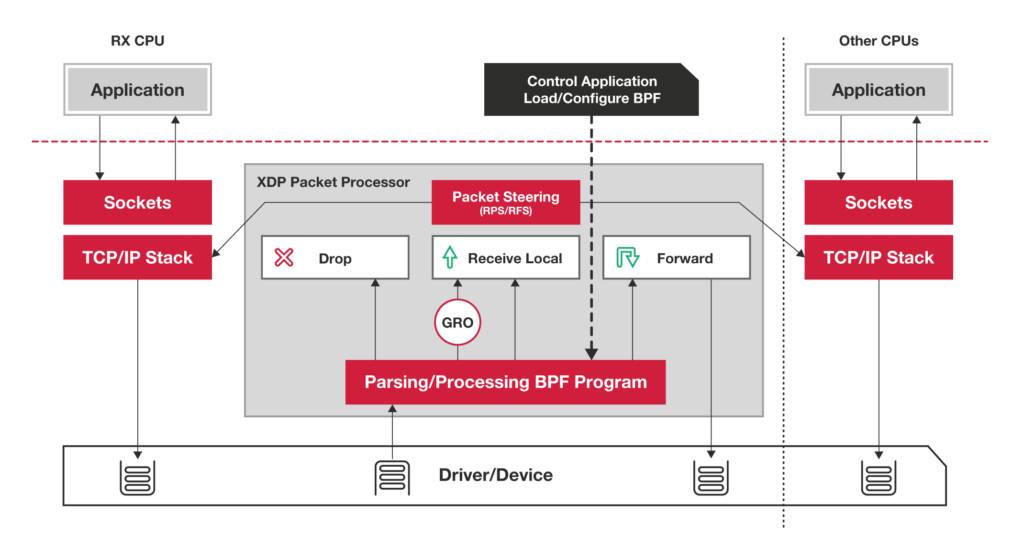Introduction to XDP
XDP or eXpress Data Path provides a high performance, programmable network data path in the Linux kernel as part of the IO Visor Project. XDP provides bare metal packet processing at the lowest point in the software stack which makes it ideal for speed without compromising programmability. Furthermore, new functions can be implemented dynamically with the integrated fast path without kernel modification. Other key benefits of XDP includes the following:
- It does not require any specialized hardware
- It does not required kernel bypass
- It does not replace the TCP/IP stack
- It works in concert with TCP/IP stack along with all the benefits of BPF
XDP Packet Processing Overview
The XDP packet process includes an in kernel component that processes RX packet-pages directly out of driver via a functional interface without early allocation of skbuff’s or software queues. Normally, one CPU is assigned to each RX queue but in this model, there is no locking RX queue, and CPU can be dedicated to busy poll or interrupt model. BPF programs performs processing such as packet parsing, table look ups, creating/managing stateful filters, encap/decap packets, etc.

The extensibility of BPF is kept intact with packet inspection and manipulation functions, flow and table lookups, and application processing leveraging BPF programs which are portable to userspace and other operating systems.
https://www.iovisor.org/technology/xdp
http://people.netfilter.org/hawk/presentations/xdp2016/xdp_intro_and_use_cases_sep2016.pdf


0